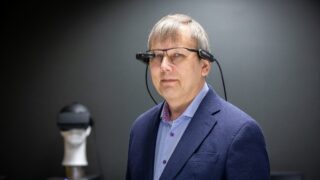Members

Head of the research team
Publications
Projects
Recognitions
The Scientific Committee member of the “Modern Materials and Manufacturing (MMM2025)” conference (6-8 May 2025, Tallinn, Estonia).
Best Academic Paper Award on 10th International XR-Metaverse Conference for a paper “Human-Centric Remote XR Workspace for Online Robot Programming” (by Peter Kovac, Vladimir Kuts and Tauno Otto)
The Scientific Committee memeber of the “Modern Materials and Manufacturing (MMM2023)” conference (2-4 May 2023, Tallinn,Estonia).